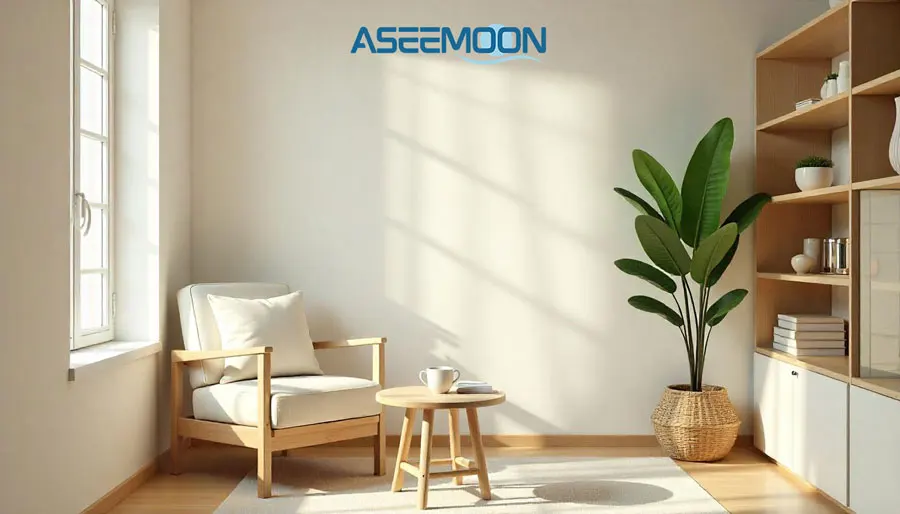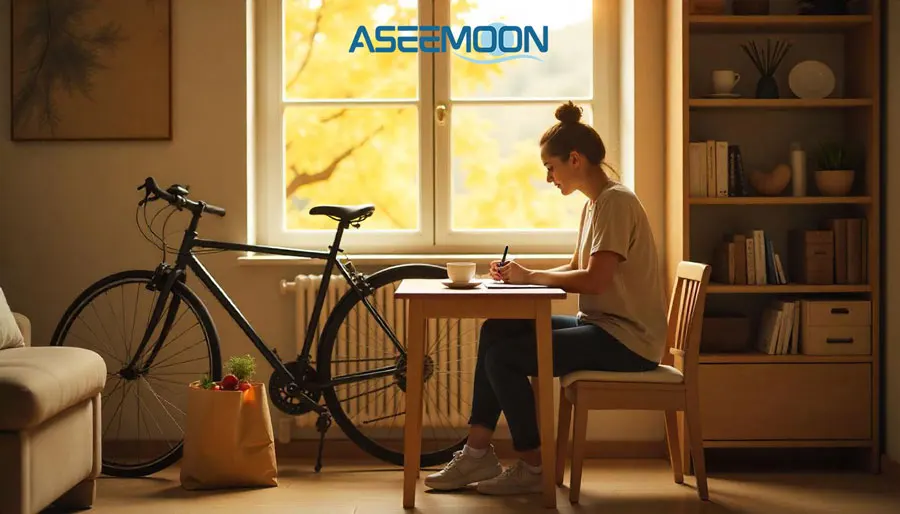How to Save Money by Living a Minimalist Lifestyle
Living a minimalist lifestyle is about focusing on what truly matters and eliminating excess. It’s not just about decluttering your home; it’s a mindset that encourages intentional spending and mindful consumption. One of the greatest benefits of minimalism is the opportunity to save money, allowing you to align your financial habits with your values and goals. In this article, we’ll explore practical ways to adopt minimalism and how it can lead to significant savings. Please stay with Aseemoon.
What Is Minimalism?
At its core, minimalism is about decluttering your life—both physically and mentally—so you can focus on what truly matters. It doesn’t mean living in a bare room with no furniture; instead, it’s about being selective with your possessions and mindful of your purchases. Think of it as quality over quantity: you choose what serves you best and let go of the rest.
Why Minimalism Can Save You Money
Minimalism naturally aligns with financial efficiency. Here’s how:
- Reduced Spending: When you focus on needs rather than wants, your impulse to buy decreases.
- Mindful Choices: Each purchase is deliberate, reducing wasteful spending.
- Lower Maintenance Costs: Owning fewer items means spending less on repairs, replacements, or upgrades.
Decluttering as the First Step Toward Minimalism
The journey to minimalism begins with a single action: decluttering. By clearing out what no longer serves you, you can reduce physical and mental clutter while creating opportunities to save.
How to Identify Items You Don’t Need
Start with these tips to streamline your belongings:
- Apply the “One-Year Rule”: If you haven’t used an item in a year, it’s likely you don’t need it.
- Ask Yourself Key Questions: Does this item bring me joy? Is it functional? Would I miss it if it were gone?
- Start Small: Begin with one category, like clothes or kitchen utensils, to avoid feeling overwhelmed.
Selling, Donating, or Recycling Unnecessary Items
Once you’ve identified surplus items, give them a second life:
- Sell: Platforms like eBay, Craigslist, or Facebook Marketplace are great for earning extra cash.
- Donate: Many organizations welcome gently used items, helping those in need while decluttering your space.
- Recycle: Dispose of unusable items responsibly to minimize environmental impact.
Setting a Minimalist Budget
A minimalist lifestyle goes hand-in-hand with a minimalist budget. This approach emphasizes spending intentionally and saving effectively.
Differentiating Between Needs and Wants
Creating a clear distinction between your essentials and non-essentials is vital:
- Needs: Rent, groceries, utilities, and basic transportation.
- Wants: Designer clothes, dining out, or the latest tech gadgets.
Creating a Sustainable Budget That Aligns with Minimalism
A minimalist budget is all about balance. Follow these steps:
- Track Your Expenses: Use budgeting apps or spreadsheets to see where your money is going.
- Set Clear Goals: Decide how much you want to save monthly.
- Allocate Wisely: Adopt the 50/30/20 rule—50% for needs, 30% for wants, and 20% for savings
Adopting a Minimalist Approach to Shopping
Minimalist shopping habits are essential to maintain your savings momentum and avoid unnecessary purchases.
How to Avoid Impulse Purchases
- Create a Waiting Period: Wait 48 hours before making any non-essential purchase.
- Make a List: Shop with a predetermined list to prevent impulse buys.
- Unsubscribe from Marketing Emails: Reduce temptation by limiting exposure to sales and discounts.
The Power of Buying Quality Over Quantity
Investing in durable, high-quality items saves you money in the long run. For example, a sturdy pair of shoes may cost more initially but last years longer than a cheaper alternative.
Minimizing Monthly Expenses
Another major benefit of minimalism is the reduction of recurring costs. Here’s how to trim your monthly expenses:
Downsizing Your Living Space
Living in a smaller home or apartment can significantly lower your rent or mortgage. Plus, it reduces maintenance and utility expenses.
Reducing Utility Costs
- Switch to energy-efficient appliances.
- Use programmable thermostats to cut heating and cooling bills.
- Turn off lights and unplug electronics when not in use.
Simplifying Your Entertainment Options
Opt for low-cost or free activities, such as hiking, library visits, or streaming instead of cable subscriptions.
Minimalist Food Choices and Meal Planning
Food is a significant expense, but minimalism can make it more manageable.
Saving Money by Cooking at Home
Preparing meals at home is not only healthier but also far cheaper than dining out. Batch cooking and meal prepping are excellent ways to reduce waste and save time.
Reducing Food Waste
- Plan meals around ingredients you already have.
- Store food properly to extend its shelf life.
- Compost scraps instead of throwing them away.
Sustainable Minimalism
Minimalism and sustainability often go hand in hand, helping you save money while protecting the planet.
Investing in Reusable and Multipurpose Items
Replace single-use products with reusable alternatives, like water bottles, cloth bags, or beeswax wraps.
Embracing Second-Hand Shopping
Thrift stores and online marketplaces are goldmines for quality, affordable items, reducing your spending and environmental footprint.
The Psychological Benefits of Minimalism
Minimalism isn’t just about saving money—it also brings mental clarity and emotional well-being. Living with less creates space to focus on what truly matters, reducing stress and enhancing life satisfaction.
Reducing Stress Through Simplicity
When your environment is clutter-free, your mind can feel less overwhelmed. A minimalist lifestyle eliminates the constant pressure of maintaining and organizing excess belongings, leaving you with a sense of calm.
Benefits include:
- Fewer decisions to make, reducing decision fatigue.
- A tidier home environment that promotes relaxation.
- More time to spend on meaningful relationships and hobbies.
Fostering Financial Confidence
Minimalism encourages you to take control of your finances by aligning spending with your values. This leads to:
- Greater financial stability as you eliminate unnecessary expenses.
- Confidence in your ability to save for long-term goals.
- A mindset shift that prioritizes experiences over material possessions.
How to Stay Committed to a Minimalist Lifestyle
Transitioning to minimalism is one thing—staying committed is another. To ensure long-term success, it’s important to build habits and celebrate milestones.
Overcoming the Temptation to Accumulate
Temptation is inevitable, but you can combat it with these strategies:
- Practice Gratitude: Regularly reflect on what you already have and appreciate its value.
- Limit Exposure to Advertising: Reduce time spent on platforms or in environments that encourage consumption.
- Focus on Your Goals: Keep a list of your financial and lifestyle aspirations visible as a constant reminder.
Celebrating Your Financial Progress
Acknowledge your achievements to stay motivated. For example:
- Treat yourself to a meaningful experience (not a material purchase) after hitting a savings milestone.
- Share your journey with friends or online communities for encouragement and inspiration.
FAQs
Can Minimalism Help Me Get Out of Debt?
- Absolutely. Minimalism reduces unnecessary expenses, allowing you to redirect funds toward paying off debt. By prioritizing needs over wants, you can accelerate your debt repayment journey.
What’s the First Step to Becoming a Minimalist?
- Start by decluttering a single area of your home, such as your closet or kitchen. This will build momentum and help you understand the benefits of owning less.
Do I Have to Sacrifice Comfort for Minimalism?
- Not at all. Minimalism is about choosing quality and purpose over excess. Many find that owning fewer, high-quality items enhances their comfort.
How Does Minimalism Impact Relationships?
- Minimalism often strengthens relationships by reducing material distractions and encouraging shared experiences over possessions.
Is Minimalism Suitable for Families?
- Yes, minimalism can benefit families by teaching children the value of intentional living and fostering a clutter-free, peaceful home environment.
Can Minimalism Be Combined with Sustainability Efforts?
- Definitely. By focusing on reusable and second-hand items, minimalism aligns perfectly with eco-friendly practices, saving money while protecting the planet.
Conclusion: How to Save Money by Living a Minimalist Lifestyle
Minimalism offers more than financial savings—it provides a pathway to a richer, more meaningful existence. By prioritizing what truly matters and eliminating the excess, you can free yourself from financial stress and enjoy a life of clarity and purpose.
Start small, stay consistent, and watch as the benefits of minimalism transform your life. The journey may begin with saving money, but it will leave you with something even more valuable: peace of mind and freedom.



